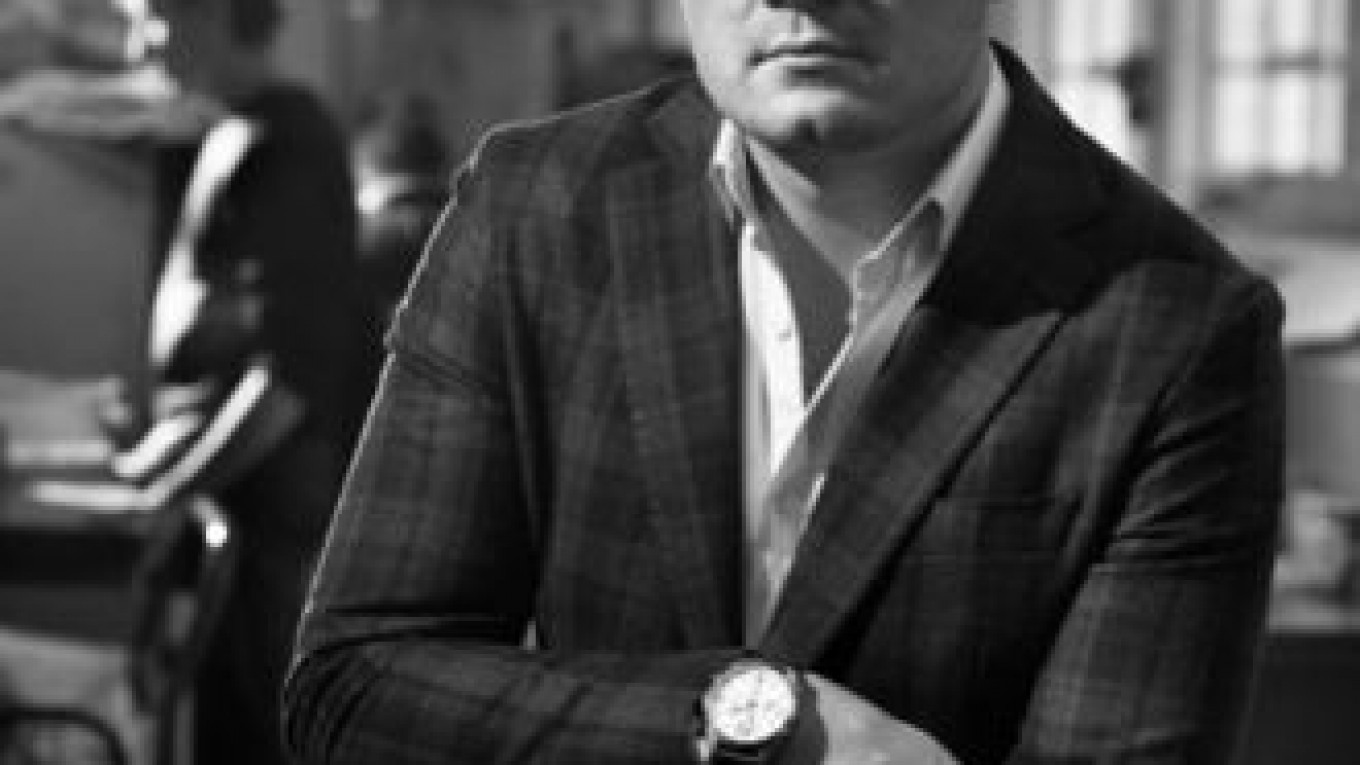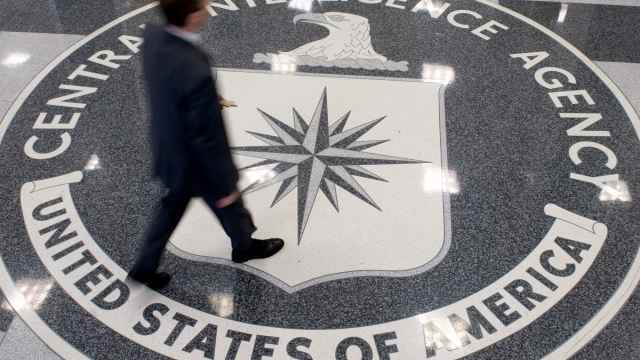Mikhail Senatorov has printed catalogs for carmaker Audi and advertising agency BBDO and campaign posters for United Russia. The Office of Presidential Affairs gave his company its Printer of the Year award.
But these days Senatorov produces a steady flow of letters to law enforcement officials and executives at Basic Element, a company controlled by billionaire Oleg Deripaska.
His company, Offset Print House 21, is mired in a dispute with Basic Element, which owns the Tryokhgornaya textile factory where he leases his premises, and he fears that he's going to get kicked out.
"We live like we're in a fortress under siege," said Senatorov, general director of Offset Print House 21, which he opened with business partner Nikolai Yelagin in 2001, a year before the textile factory was purchased by Basic Element Group.
Disputes between business owners and landlords are nothing new. But what makes this unique is that few small business owners have dared to challenge a billionaire as powerful as Deripaska.
Basic Element said its plans for the factory, portions of which were built in the 18th century, are to facilitate textile manufacturing. But some observers suspect that it wants to develop a luxury office center in the factory on 15 Rochdelskaya Ulitsa, near the White House.
"The redevelopment of the place would be quite lucrative because many companies are interested in having a prestigious address near Kutuzovsky Prospekt," said Anastasia Uspenskaya, a consultant with the Jones Lang LaSalle real estate agency.
Senatorov's printing plant, which he built from scratch inside the old brick factory, is in jeopardy. The factory management, he said, wants to remove his business, with an annual turnover of $3 million to $4 million and 85 employees, from its premises.
The reason? The Deripaska-owned company is not satisfied with the rent Senatorov pays: $45 per square meter per year for a space of 1,400 square meters. Experts estimated that the market value for a lease for renovated premises on the site ranges from 8,000 rubles to 16,000 rubles ($290 to $580) per square meter.
While the lease amount might sound laughable for premises located near the White House and World Trade Center, the price in the contract, which runs through 2016, is not subject to renegotiation.
Senatorov acknowledged that the price might be low, but he noted that in addition to the printing plant, he has signed contracts to rent three areas of the factory for $220 to $360 per square meter annually. "That makes it a medium rental price on the market," Senatorov said.
The factory has terminated the agreements for the three areas, with the last being severed in June, and the printer's main building is now the only facility left.
Senatorov and his business partner said they were willing to move to another location but they want $2 million in compensation for the money they spent renovating and equipping what was an abandoned factory building when they moved in.
Senatorov said the building had been used for dying fabric, and nothing more than walls and the roof were in place when he arrived. Even the floor had to be replaced because of damage from the acid dyes.
"They told me they have no premises within the factory, and that was all," he said.
However, Tryokhgornaya spokeswoman Tatyana Yamshchikova said the factory offered Senatorov a chance to relocate after city officials gave a special historical status to the building he occupies.
"But the company management tried to take advantage of the situation by demanding compensation that is 3 1/2 times greater than the sum received from the print house over the 10 years of the lease," Yamshchikova said.
Senatorov said the factory met his demands with a declaration of war. In February, the factory prohibited the printer's trucks and clients' cars from entering its territory, demanding that he pay 150 rubles ($5) every time a car enters and 6,000 rubles ($200) for a monthly pass for one car. "It was done without any explanation. They have chosen to terrorize us," Senatorov said.
He said he has paid almost 94,000 rubles ($3,000) for single-car passes for visitors over four months.
In May, Senatorov said, the factory cut his phone and Internet cables, forcing him to use his cell phone for business communications and to switch to more expensive wireless Internet. He said he believes that phone operator West Call cut the lines under pressure from the factory and that no one else's cables were cut on the premises.
West Call representatives had no immediate comment on the claim.
Senatorov said he has filed complaints about the factory with the prosecutor's office and Federal Anti-Monopoly Service and even wrote a letter to Prime Minister Vladimir Putin, whose United Russia party was among his clients.
Senatorov in January was named Printer of the Year by the Office of Presidential Affairs for his work with government agencies.
This month, the Presnensky District Prosecutor's Office sent him a letter saying that an additional investigation would be made in the case, Senatorov said.
Incidentally, Tryokhgornaya textile workers also tried to attract the attention of Putin and his All-Russia People's Front in late May, rallying against management plans to slash the work force and relocate the factory to Gavrilov-Yam, a depressed town in the Yaroslavl region that is also home to another textile factory owned by Basic Element.
The protesters were supported by the Russian Textile Union, which sent a letter to the Prosecutor General's Office asking it to look into the situation.
This is not the first time that Deripaska, whose fortune is estimated at more than $16 billion by Forbes magazine, has been embroiled in a labor dispute. In 2009, Putin personally intervened after workers at a Basic Element-owned cement plant in the Leningrad region town of Pikalyovo blocked a major road demanding payment after the plant ceased operations due to high prices charged by local raw-material suppliers.
A spokesman for Deripaska's Basic Element referred all questions to Tryokhgornaya.
Tryokhgornaya spokeswoman Yamshchikova said her company is "engaged in a continuing dialogue with the printer to reconsider the lease agreement." She called the 2001 lease agreement "enslavement" and said the factory doesn't rule out the possibility of going to court.
"We are amazed that the printer is making a business conflict public. That is called pressure," Yamshchikova said.
Senatorov said he doubts that the factory will go to court. "This situation did not start yesterday," he said. "They could have filed a lawsuit against us many times if they had a legal basis."
A Message from The Moscow Times:
Dear readers,
We are facing unprecedented challenges. Russia's Prosecutor General's Office has designated The Moscow Times as an "undesirable" organization, criminalizing our work and putting our staff at risk of prosecution. This follows our earlier unjust labeling as a "foreign agent."
These actions are direct attempts to silence independent journalism in Russia. The authorities claim our work "discredits the decisions of the Russian leadership." We see things differently: we strive to provide accurate, unbiased reporting on Russia.
We, the journalists of The Moscow Times, refuse to be silenced. But to continue our work, we need your help.
Your support, no matter how small, makes a world of difference. If you can, please support us monthly starting from just $2. It's quick to set up, and every contribution makes a significant impact.
By supporting The Moscow Times, you're defending open, independent journalism in the face of repression. Thank you for standing with us.
Remind me later.






